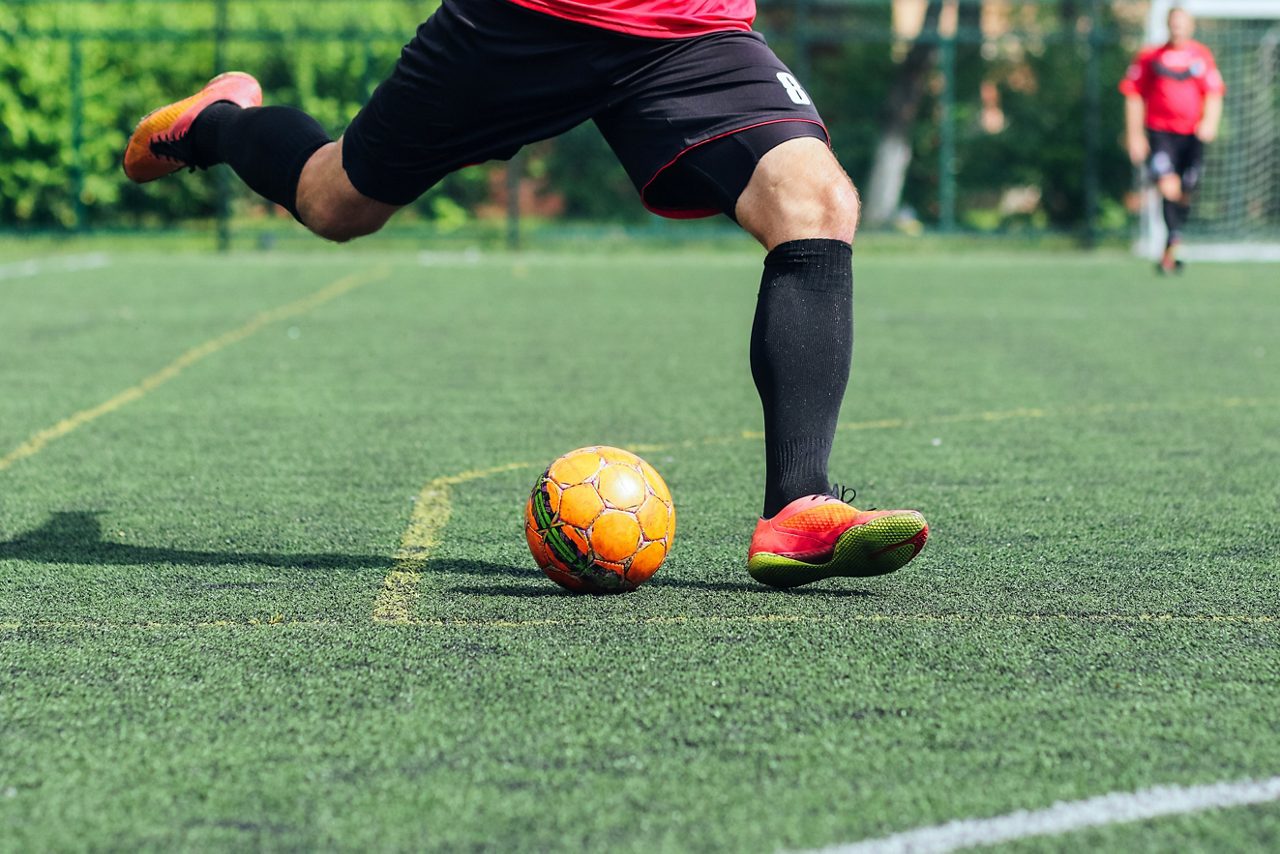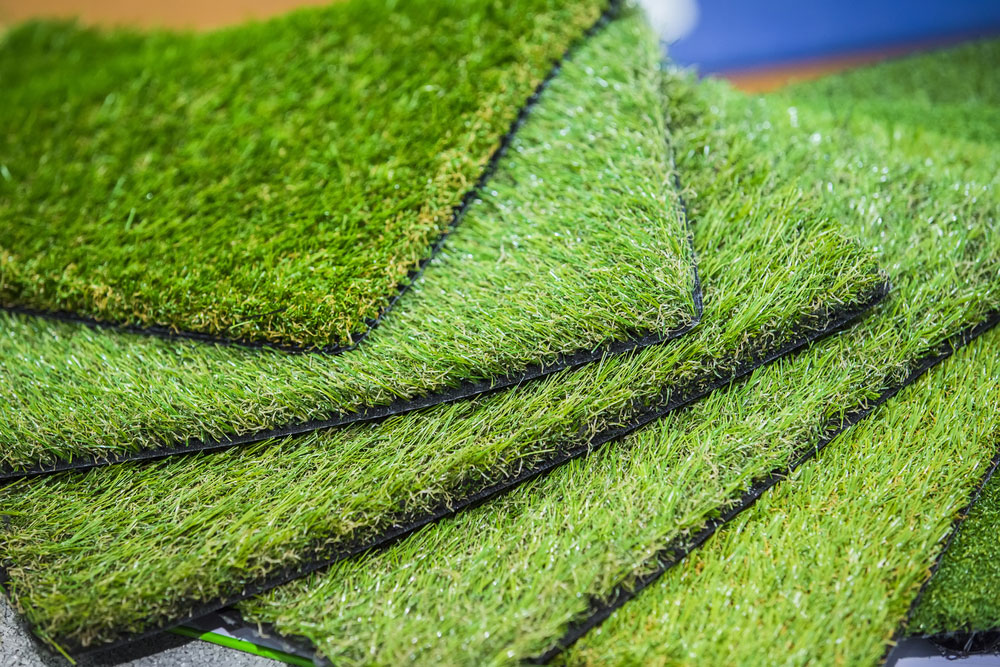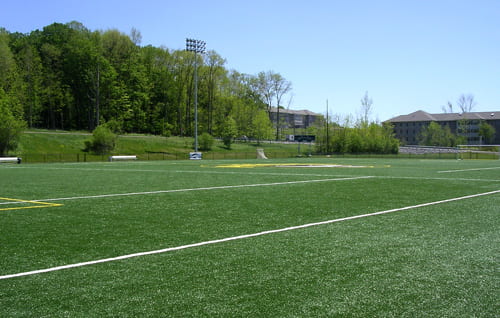Well-Known Artificial Turf Companies Phoenix for a Beautiful and Green Lawn
Explore the Environmental Benefits of Opting for Artificial Grass Solutions
The adoption of fabricated grass remedies presents an engaging chance to attend to pushing ecological difficulties. By dramatically minimizing water use and minimizing the application of unsafe chemicals, these choices not only advertise sustainable landscaping however likewise secure local ecosystems. The reduced carbon footprint associated with lowered maintenance activities contributes to a more sustainable technique to land monitoring. The effects of these benefits expand past simple conservation efforts, elevating questions about their long-term impact on environment preservation and total environmental balance. Checking out these dimensions reveals a complicated interplay worth thinking about.
Water Preservation Advantages
One of the most considerable advantages of synthetic lawn is its capacity to preserve water. In comparison, synthetic turf does not need watering, substantially reducing the overall need for water sources.
By getting rid of the demand for regular watering, synthetic grass adds to sustainable landscape techniques and helps reduce the ecological effect of excessive water intake. The preservation of water prolongs to the decrease of drainage, which can lead to dirt erosion and waterway contamination.
Additionally, the installation of synthetic grass enables home owners and municipalities to allocate water resources a lot more successfully, concentrating on necessary usages such as alcohol consumption water and agriculture. The change towards synthetic grass not just advertises liable water use but likewise straightens with more comprehensive ecological goals targeted at preserving natural deposits.
As communities increasingly focus on sustainability, the water preservation benefits of fabricated turf provide an engaging situation for its fostering in household and business landscaping tasks.
Lowered Chemical Use
The change to synthetic grass dramatically lowers the dependence on chemical treatments commonly used in all-natural lawn maintenance. Traditional turf administration generally includes the application of herbicides, pesticides, and plant foods to promote growth and control insects. These chemicals can posture threats to human wellness, regional wildlife, and the environment, contributing to soil and water contamination.
On the other hand, synthetic grass removes the requirement for these damaging compounds. Once mounted, it requires very little upkeep, mostly being composed of regular cleansing and infrequent infill replenishment. This reduction in chemical usage not just profits the prompt atmosphere but additionally adds to more comprehensive ecological security. By lessening the launch of synthetic compounds into the ecosystem, synthetic lawn advertises much healthier soil and water systems.
In addition, the absence of chemical overflow associated with synthetic grass setups aids shield neighborhood rivers from pollution, sustaining aquatic life and keeping biodiversity. Arizona turf. As areas progressively focus on lasting techniques, choosing synthetic grass presents a sensible remedy that straightens with environmental preservation objectives. Via this change, homeowner can delight in lavish green rooms without endangering ecological health and wellness, paving the way for a much more sustainable future
Lower Carbon Footprint

Moreover, the installment of synthetic grass can cause substantial water preservation. All-natural lawns require significant quantities of water for irrigation, which not just adds to the carbon impact connected with water removal and treatment however also pressures regional water sources. On the other hand, fabricated turf needs minimal maintenance, needing no watering, thereby considerably minimizing water use and its linked power costs.
Furthermore, the longevity of artificial lawn adds to its reduced carbon impact. With a life expectancy of as much as 15 years or more, the need for constant substitutes is reduced, resulting in less waste and lower power intake in production and throwing away traditional grass alternatives. Generally, fabricated lawn offers a lasting alternative for environmentally conscious landscape design.
Environment Conservation
Environment conservation is an important factor to consider in the argument over landscape design selections, especially when comparing fabricated turf to all-natural lawn. Natural yard lawns typically require extensive upkeep, consisting of making use of fertilizers, herbicides, and go to this site pesticides, which can adversely impact local ecological communities. These chemicals can leach into the soil and Continued waterways, damaging indigenous vegetation and fauna and disrupting neighborhood habitats.
In comparison, man-made turf presents a possibility to minimize the environmental footprint of landscape design. By selecting artificial turf, home owners can reduce the disturbance of natural environments related to standard lawn care techniques. Synthetic grass gets rid of the demand for dangerous chemicals, thus safeguarding nearby wild animals and maintaining the stability of bordering ecosystems. Additionally, the installment of artificial grass can cause the conversion of previous grass locations right into more biodiverse landscapes, such as pollinator gardens or indigenous plant locations, which can support neighborhood wild animals.
Eventually, the shift to synthetic grass not only conserves water and reduces upkeep initiatives however likewise fosters a more unified partnership between human activities and the all-natural setting, advertising habitat conservation in the procedure.
Long-Term Sustainability
Long-lasting sustainability is a crucial variable in reviewing the advantages of synthetic turf over typical lawn lawns. Among one of the most considerable benefits of man-made turf is its resilience; it can last up to 15-20 years with marginal maintenance, whereas natural yard needs frequent reseeding and substitute. This long life lowers the requirement for constant sources, such as water, plant foods, and pesticides, which are vital for preserving a healthy turf yard.
Furthermore, artificial lawn contributes to a decrease in carbon discharges linked with lawn treatment equipment. Typical yards commonly require gas-powered lawn mowers, trimmers, and blowers, all of which add to air contamination. Phoenix turf companies. On the other hand, synthetic grass removes the requirement for such equipment, advertising a cleaner setting
Furthermore, the manufacturing of synthetic grass significantly makes use of recycled products, boosting its sustainability profile. As producers embrace environment-friendly techniques, the ecological impact of synthetic grass continues to decrease.

Verdict
The adoption of synthetic grass remedies offers substantial ecological benefits, consisting of significant water preservation, lowered dependence on unsafe chemicals, and a reduced carbon impact. In addition, synthetic grass help in maintaining all-natural habitats by reducing land disturbance and promoting lasting sustainability via using long lasting materials. Collectively, these variables emphasize the capacity of artificial lawn to contribute positively to ecological health and offer a sensible choice to conventional landscaping techniques in a significantly resource-conscious world.
In contrast, man-made turf does not require watering, dramatically minimizing the overall need for water resources. By decreasing the release of artificial compounds right into the environment, artificial lawn promotes much healthier soil and water systems.
Furthermore, the installment of man-made turf can result in significant water preservation. In comparison, man-made grass needs very little maintenance, needing no watering, thereby dramatically minimizing water use and its connected power costs.
